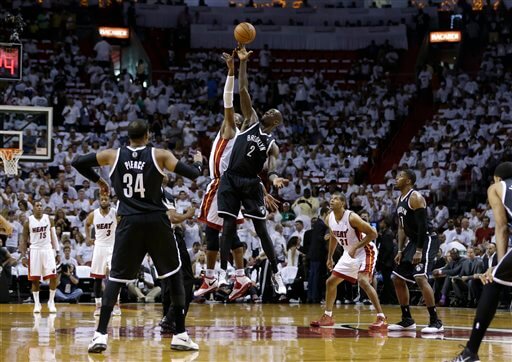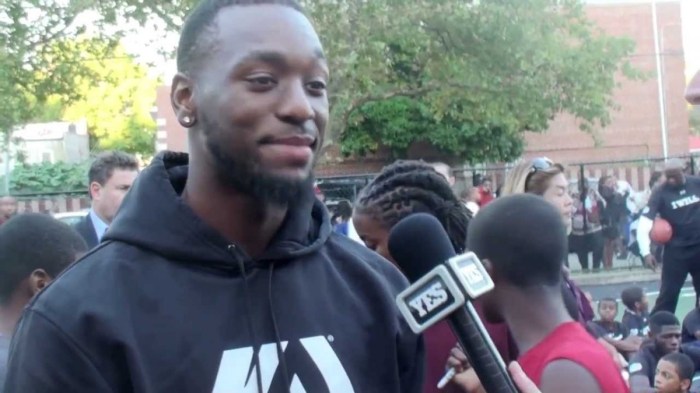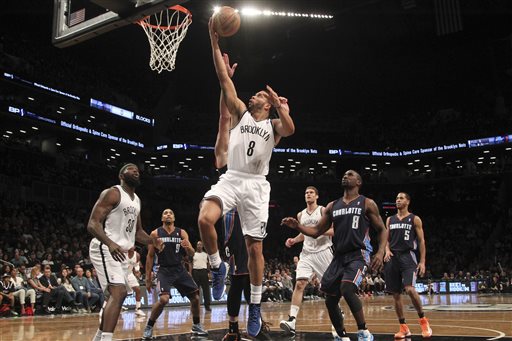
Game 2 of Nets-Heat kicks off at 7 P.M. Here’s three things you’ll want to watch.
1) Attack strong to open up weak. Both Heat coach Erik Spoelstra and Nets forward Paul Pierce stressed the importance of their teams attacking the opposing defense on one side of the floor to open up shots around the perimeter and keep the defense shifting from side to side. “When you have the ball on the strong side they’re gonna sent two, three guys, make you skip the ball,” Pierce said Tuesday night. “We didn’t really skip the ball tonight to get it to the weak side so we could drive.”
“It’s not easy to get anything on the strong side in the playoffs,” Spoelstra agreed Thursday morning. “You’re only dealing with very good defensive teams.”
The Nets didn’t play much strong-side defense or create much offense out of attacking the basket Tuesday night. Keep an eye on how the ball moves around when the Nets attack, and if the Nets can keep the Heat out of the paint on the other end.
“Against a team like them, it’s going to be hard to rack up the assists,” Deron Williams said before the team’s shootaround Thursday morning. “What you do is you make the pass that sets up somebody else to make the pass. If I get into the paint, there rotations are so good, it’s not the first pass or maybe even the second pass. It’s the third pass. The ball has to move faster than them.”
The NBA now tracks “secondary assists,” or the pass that leads to the pass that becomes an assist. Williams was one of the league’s top players in secondary assists, averaging 1.9 per game. (To compare, Bobcats guard Kemba Walker led the league with 2.8 per game. LeBron James ranked fifth, averaging 2.0 per game.)
Williams eclipsed his season average, picking up three secondary assists in Game 1. But the Nets as a team only picked up seven secondary assists on 11 total assists, one indication of the team’s stagnated ball movement. Their passes often led to either no shot or a bad one.
2) Kevin Garnett. For the first time in 123 career playoff games, Garnett ended Game 1 with zero points. He’s not a scorer, but it’s still a shock how precipitously Garnett’s offensive play has declined this year, even considering his diminished minutes. He shot a career-low 44.1 percent from the field. He averaged a career-low 11.4 points per 36 minutes. His assist percentage was his lowest since his rookie season. His player efficiency rating (13.3) was below the league average for the first time ever.
He put up his best game of the playoffs when the team needed him post, scoring 12 points and adding 11 rebounds in a decisive Game 7 win against the Raptors. But every game from here on out is more important than that. How much does he have left?
3) Shot distribution. This goes hand in hand with creating out of the strong side, but the Nets only took 12 shots in the restricted area all game. The Heat took 15 shots in the restricted area in the first half. They can’t do that against the defending champions and expect to leave anything but down 2-0.

















